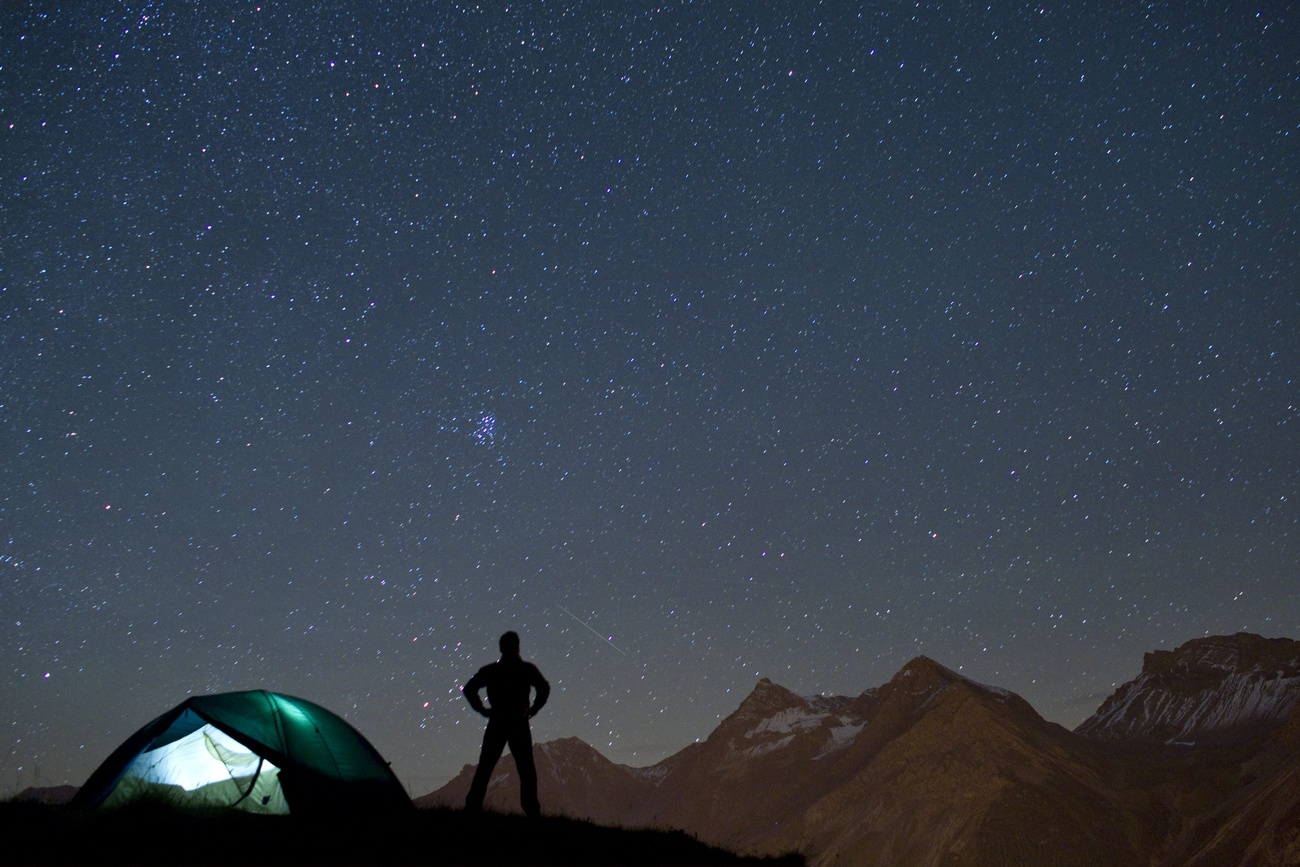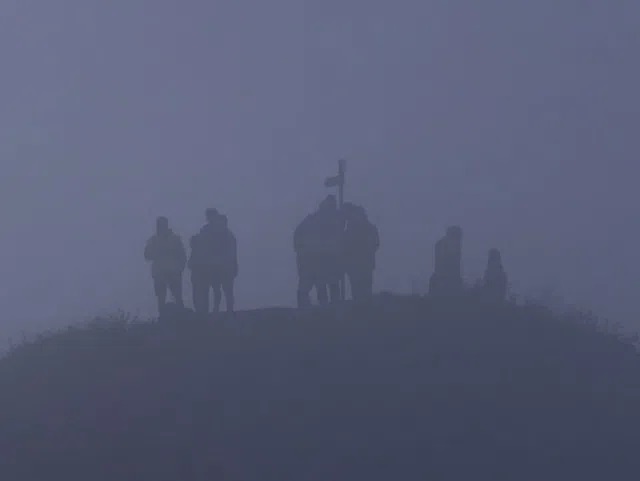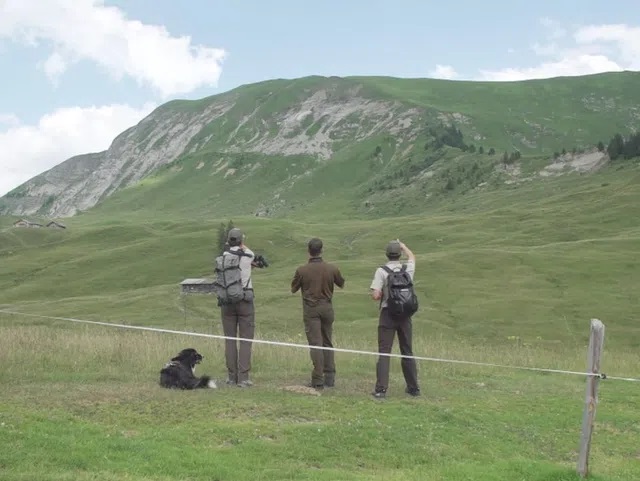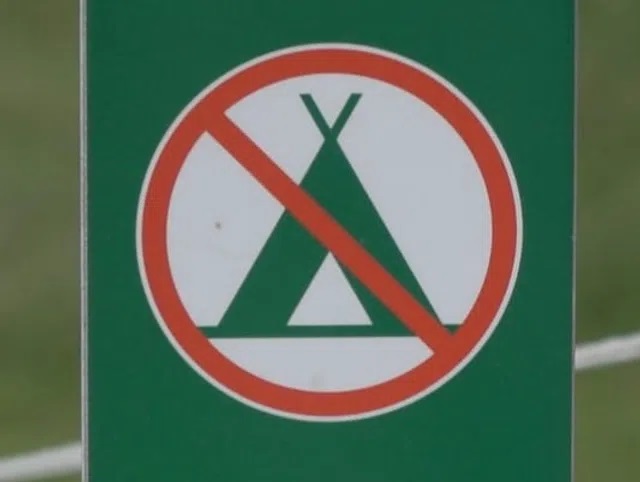
Campers inspired by social media disrupt Swiss alpine wildlife

Campers, driven by picturesque images on social media, are taking over the mountains. Some of these campers set up their tents illegally. This presents a burden on wildlife that thrive in a quiet habitat.
Shortly before dawn on the Brienzergrat mountain ridge in central Switzerland, five young men wait along with other hikers for the sun to come up over the mountains. But the thick clouds fail to part for the waiting crowd.
“I am a little disappointed. We’ve been hiking for a long time. All that hiking just for this – it’s nice enough, but not perfect,” says one of the young men from the group. The view is not great for a sunrise photo.

Fortunately, the group of friends had already taken a photo of the sunset the day before and posted it on social media.
However, it is illegal to camp on this mountain ridge. The area is under wildlife protection. The group said they only realised it was illegal to spend the night here when they noticed the warning sign forbidding camping when they got to the top of the mountain.
Signage, rangers and an extra-small entrance
In the Lombachalp moorland in Bern, 500 metres below where the group of friends have camped overnight, two rangers and the cantonal gamekeeper are watching what is happening above them. In the time following the Covid-19 pandemic, a growing number of people have gone camping on the Brienzergrat ridge.

Multiple signs forbidding camping, two rangers intercepting would-be campers, and an extra-small entrance to the wildlife sanctuary that is meant to physically stop people from carrying large bags into the wildlife reserve have helped only to a certain extent.

During the high season, people camp up here almost every day. The game warden goes up once a week and hands out fines to the overnight campers. The rangers say that the continuous influx of campers is primarily due to social media: “The problem is social media. So many people come because they have seen the location shared online.”
A vicious circle caused by Instagram
In canton Glarus, 2,500 metres above sea level on the Muttenkopf peak looking over Lake Limmeren, thousands of similar photographs can be found on Instagram.
Camping on the peak is legal, but Samuel Ganter, the cantonal gamekeeper, is worried all the same. “It’s taking on proportions that are detrimental to the local wildlife and flora,” he says. “There are not as many animals here as there are at around 1,000 metres, but the wildlife higher up is more dependent on peace and quiet for their habitat.”
People camp on the Muttenkopf peak every day. On weekends, there is anywhere between 15 and 20 tents, says Claudia Freitag, who runs the nearby Muttseehütte boarding hut.
She too is feeling the effects of the increasing number of campers. “They leave rubbish, use our sanitary facilities and water,” she says. But she is also realistic. “Marketing-wise, of course, it’s a no-brainer. If the location goes viral, we don’t have to do as much advertising for overnight bookings.”
Although the increased number of visitors is good for business, Freitag thinks there needs to be more regulations put in place. This season she has begun to keep a tally of how many people camp on the peak daily and documents various occurrences.
Awareness campaigns or bans?
For Gantner, it is clear that things cannot continue the way they have been.
“I think it’s great that people are enjoying nature,” he says. “But it’s very one-sided. They take out of it what they want and post it online everywhere. They don’t realise the pressure and stress it puts on wildlife.”
For this reason, he says it is important for the rangers to do more awareness-raising campaigns. But he says it might also be necessary to consider imposing an entry ban for cars or even a general ban on tents. Currently, the canton of Glarus is exploring various options.
Translated from German/gw

In compliance with the JTI standards
More: SWI swissinfo.ch certified by the Journalism Trust Initiative



























You can find an overview of ongoing debates with our journalists here . Please join us!
If you want to start a conversation about a topic raised in this article or want to report factual errors, email us at english@swissinfo.ch.